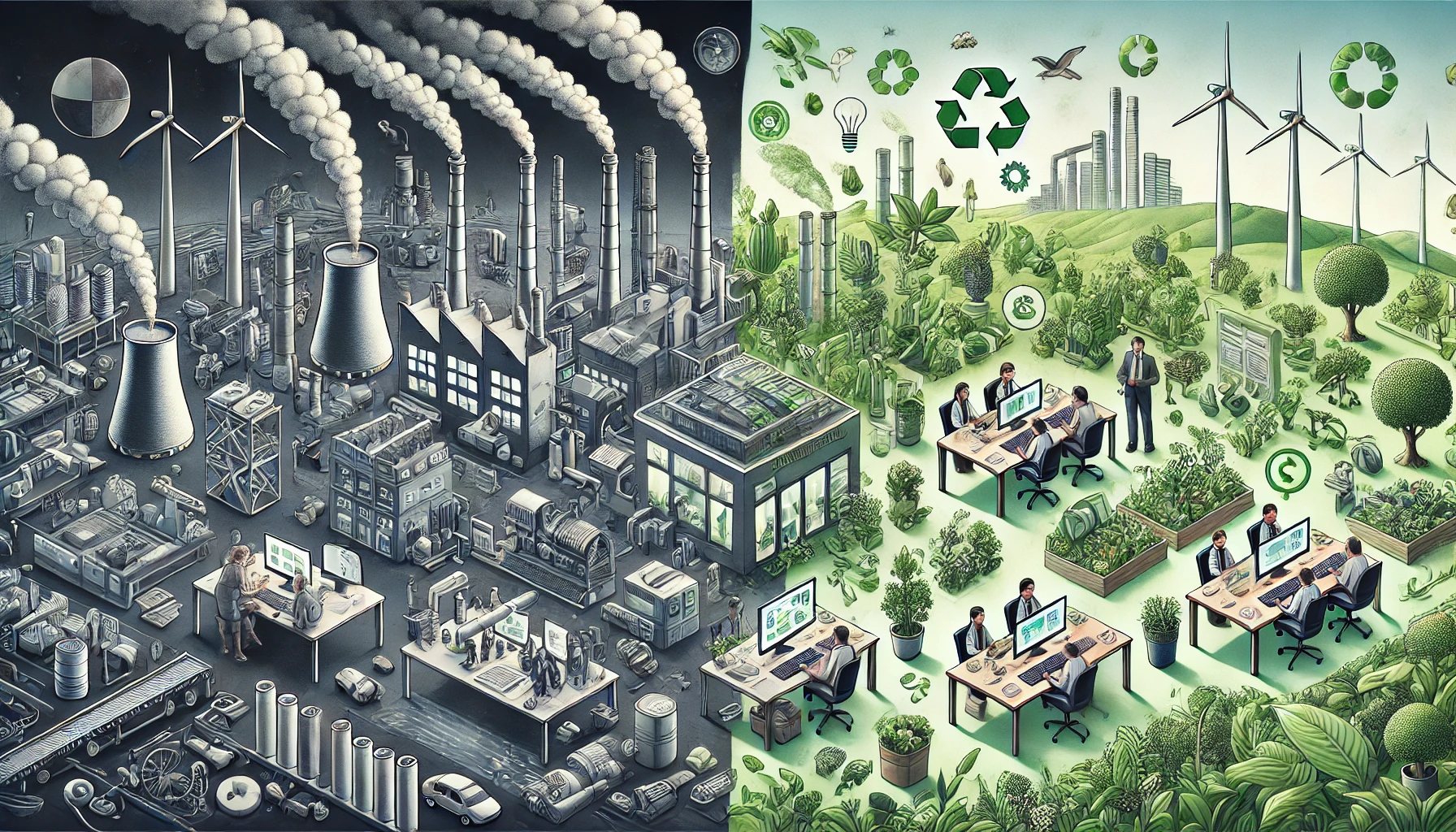As the world shifts toward sustainable living, businesses are increasingly integrating environmental, social, and governance (ESG) factors into their operations. This trend reflects a shift in consumer expectations and regulatory demands, positioning sustainability as a central component of modern business strategy. This article examines the rise of sustainability in the business sector, exploring how it drives profitability and enhances corporate responsibility, with references from key industry studies.
Why Sustainability Matters in Business Today
The modern consumer is highly aware of environmental issues, and this awareness influences purchasing choices. According to a study by the Harvard Business Review, 65% of consumers express a preference for eco-friendly brands, demonstrating the demand for sustainability in everyday products (Harvard Business Review, 2022). As a result, companies are rethinking their strategies to include eco-friendly products and practices to attract this conscious market segment.
Furthermore, the United Nations Global Compact states that sustainable business practices not only appeal to consumers but also attract investments. Investors today are looking for companies with sustainable business models that mitigate risk and promote long-term value (UN Global Compact, 2021). Incorporating ESG criteria can help businesses align with global environmental goals while also appealing to investors.
Key Trends in Sustainable Business Practices
- Green Energy and Carbon Reduction: Many companies are committing to reduce their carbon footprints by transitioning to renewable energy sources. The International Energy Agency (IEA) notes that the adoption of green energy has become a critical goal for companies worldwide to comply with carbon reduction targets (IEA, 2023). Corporations are investing in solar, wind, and other renewable sources to achieve net-zero emissions, often setting ambitious goals for 2030 and beyond.
- Sustainable Supply Chains: Building a sustainable supply chain is essential for minimizing environmental impact. By sourcing materials responsibly, reducing waste, and ensuring fair labor practices, companies create transparent and ethical production systems. According to the World Economic Forum (WEF), sustainable supply chains not only enhance brand reputation but also reduce risk exposure related to unethical practices (WEF, 2022).
- Eco-Friendly Packaging: Packaging plays a significant role in waste generation. Many companies are now opting for recyclable, compostable, or reusable packaging to reduce waste. A report from McKinsey & Company shows that businesses that adopt sustainable packaging can significantly reduce their environmental footprint, as well as reduce costs in the long run (McKinsey, 2023). Companies like Unilever and Coca-Cola have committed to reducing plastic usage and increasing the recyclability of their packaging materials.
- Employee Engagement in Sustainability: Sustainability is also becoming a factor in employee engagement and retention. According to Deloitte, employees today are more likely to stay with companies that demonstrate commitment to sustainability (Deloitte, 2022). By creating a workplace culture that prioritizes environmental responsibility, companies can foster greater loyalty and satisfaction among employees.
The Financial Benefits of Going Green
While some view sustainability as a cost, it often results in long-term financial benefits. Companies that implement sustainable practices frequently find that they reduce costs and improve efficiency. For example, reducing energy consumption and waste can lead to significant cost savings. Additionally, businesses with strong ESG performance are more attractive to investors, potentially increasing capital inflow and enhancing profitability. The Global Sustainable Investment Alliance (GSIA) reports that sustainable investments have been on the rise, as investors seek businesses that align with sustainability goals (GSIA, 2023).
Conclusion: The Future of Business is Green
Sustainability has become more than just a trend—it is a driving force that shapes the future of business. By integrating sustainable practices, companies not only contribute to the preservation of the environment but also enhance their competitiveness and appeal in the market. As we continue to face global challenges like climate change and resource scarcity, businesses that prioritize sustainability will play a crucial role in fostering a more resilient and sustainable economy.
References:
- Harvard Business Review. (2022). Consumer Demand for Sustainable Products.
- United Nations Global Compact. (2021). Corporate Sustainability and Long-term Value Creation.
- International Energy Agency. (2023). Corporate Commitment to Carbon Reduction.
- World Economic Forum. (2022). The Importance of Sustainable Supply Chains.
- McKinsey & Company. (2023). Sustainable Packaging Trends.
- Deloitte. (2022). The Role of Sustainability in Employee Engagement.
- Global Sustainable Investment Alliance. (2023). Growth of Sustainable Investments.


